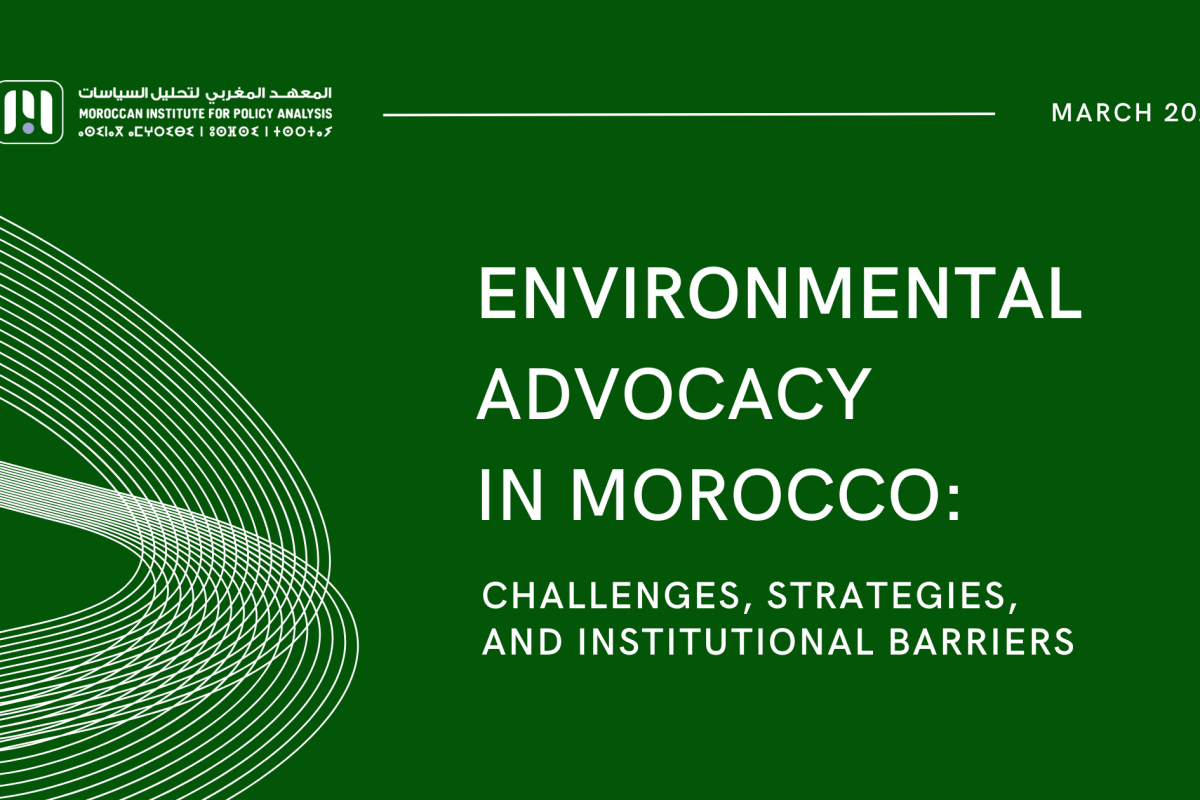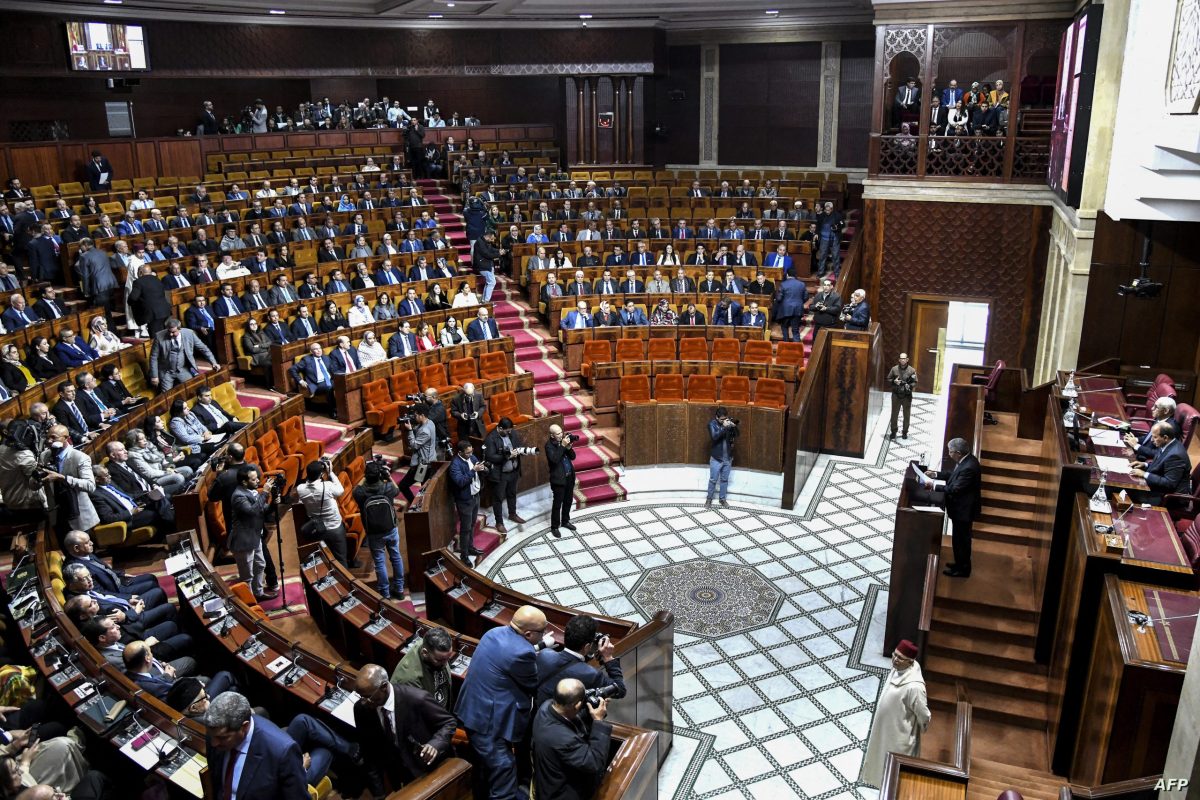[vc_row][vc_column][vc_column_text]
In Jerada and elsewhere, the absence of long-term CSR initiatives by mining companies may affect negatively the local population
Executive Summary
The tragic death of two miners in Jerada was followed by a popular protest movement that unveiled decades of economic marginalisation in a region that was once home to the largest coalmine in North Africa. Historically, mining companies have made no serious attempt to integrate themselves into the communities in which they operate, and have therefore only made ad hoc contributions to their socioeconomic environments. The legacies of ghost towns continue to linger in areas where mines have long been shuttered and the conflictual and controversial nature of mining operations has forced some companies to reconsider their practices in light of the increased importance of sustainability and corporate social responsibility (CSR) principles. Jerada is a powerful reminder that the absence of long-term CSR initiatives can have a significant negative impact on the lives of thousands of people. Social protests in mining regions in Morocco are not restricted to Jerada. In the southern village of Imeder, protests have been ongoing during the last four years over water stress and socio economic development issues around a silver mine. To avoid repeating the mistakes of Jerada in other Moroccan mining regions, sustainability and CSR initiatives should become part of the mining companies’ strategic orientations.
Introduction
Two brothers Jedouane and Houcine died in dramatic circumstances inside a mine in Jerada triggering a large-scale protest movement that began in December 2017. The protest was compounded by the anger and frustration felt following the death of another miner in February 2018. These protests brought back to the surface decades of socioeconomic marginalisation and exclusion following the shutdown of a large coalmine in 1998. The company running the coalmine; Charbonnages du Maroc (CDM) was the largest employer in Jerada and its shutdown affected the entire region, leaving it as one of the poorest cities in Morocco, with an unemployment rate exceeding 30% (compared with a national rate of around 10%) and a poverty rate of 11%, six points higher than the national level.
The dramatic situation in Jerada also indicates how the absence of a long term corporate social responsibility (CSR) strategy can negatively impact the lives of thousands of people. Indeed, Jerada is a powerful reminder of the need to integrate social, environmental and good governance factors from the inception of any mining project. As such mining companies should address the impacts of their operations and also of their closure ahead of time. Failure to do so would most likely harm the local population. It is true that the case of Jerada protests has got large media coverage but those protests are not particular to this region and are common in other mining areas in Morocco. This is why it is important to emphasize the need to develop long term CSR strategy which seeks to mitigate negative impacts and contribute to the socioeconomic development of the communities at stake.
Jerada, Precarious living conditions around the mine
Before discussing the CSR approach, it is worth noticing that coal was discovered in Jerada during the French colonisation in mid of 1920s and the mine was run by CDM which was nationalised in the early 70s. During the 80s, the mine faced serious challenges and was running under deficits. The challenges related among others to the decline in international coal prices, severe competition from Russian and south African coal and technical problems linked to complicated extractive conditions. To tackle the situation, CDM introduced technical solutions to improve efficiency and to reduce production costs. The company also reduced its workforce from 7000 miners to less than 2000 in the early 90s. This workforce reduction created social tensions between the company form one side and the labour unions from the other side. Early retirement plans were put in place but it is difficult to verify if those agreements on retirements have been fully respected.
Despite attempts to improve productivity and efficiency, the coalmine in Jerada was deemed unprofitable and shuttered in the late 90s. Despite this, hundreds of people continue to risk their lives on a daily basis in the hopes of retrieving a few pounds of anthracite to sell for a living. Obviously, the working conditions are extremely precarious, as those who venture into the mines are not equipped with protective garments and the mine has not been maintained since its shutdown.
At first glance, these grievances may appear to be highly localized, but they actually resonate far beyond Jerada and the Kingdom. Extractive industries have indeed come under intense scrutiny following severe human rights abuses and widespread unrests in mining regions across the globe.
The Mining Industry – A Long History of Controversy
In fact, operations of extractive companies in different parts of the world have been often punctuated with unrest and conflict. Mining, by its very essence, is a multifaceted industry with complex operations that directly affect local neighbouring communities. The mining industry is also strongly affected by external factors ranging from weather conditions to international commodity prices. Mining industry’s reputation have always been linked to environmental concerns, the lack of a long-term development strategy and a generally difficult social and multiple stakeholder dialogue, which consequently tarnished the reputation of Mining industry. A number of well-documented cases of human rights violationsave also hurt the industry’s reputation and jeopardised companies’ social license to operate.
For instance, in August 2012, South African security forces killed more than 40 people at a Lonmin owned mine in Marikana. The violence began following peaceful protests demanding better living conditions and fair wages. The International Labour Organization denounced the perilous working conditions that exposed miners to safety hazards such as high temperatures, harmful noise, and falling rock. On the local community level, protesters argued that the benefits of mining are not fairly distributed when mining companies reap huge profits while the local community remains socially and economically marginalised.
The mining resource war has also claimed lives in other parts of the world. The Brazilian Amazon is the backdrop for regular, violent clashes between local communities and gold prospectors. Indigenous communities have even called for clear demarcation lines to protect their lands against prospectors. Tensions also exist between small-scale miners and larger mining companies. The Brazilian government’s inaction and inability to enforce federal law to protect public land and private property further exacerbates these problems.
In Canada, Idle No More, a grassroots movement, mobilized aboriginal communities to seize more control over mining development sites. The movement, which is largely decentralized in its leadership, has called for a greater ownership stake in mining operations.
Back to Jerada
Echoing Idle No More, the protest movement in Jerada was not centrally planned but rather emerged spontaneously with the help of social media. Thousands of people took to the streets following the death of the two brothers demanding economic alternatives, accountability, and fairer prices for utilities such as water and electricity.
The Moroccan government’s response to the Jerada movement, meanwhile, has been inconsistent and cause confusion among citizens. On the one hand, the Ministry of Interior circulated a note highlighting its duty to enforce law and order in the city and to prevent what it called “illegal demonstrations.” While on the other hand, in a visit to the Kingdom’s eastern governorates, Prime Minister Saadeddine Othmani announced a plan outline to respond to the public’s socioeconomic grievances. The plan would seek to improve living conditions in the region and is centred on greater investment in agriculture, education, and entrepreneurship, as well as social infrastructure. To ensure a commitment to the development plan, a timeline for execution has been determined.
This is not the first time that the government gave promises to the region. Indeed, at the time of the mine shutdown in 1998, the government promised measures that related mainly to the provision of health care services, early retirement and pension plans for affected miners. Such measures were at best quick fix which could not contribute to a long term local socio economic development. This may explain the fact that people still protest as they no longer trust the government promises.
From Conflict to Cooperation
The CDM company that once operated the Jerada coalmine for over 70 years suspended all operations toward the end of the 90s without clear exit plan, which has led to weakening the region’s socioeconomic fabric and leaving the government as the only stakeholder responsible for designing and implementing development plans for the region. While the government is partly responsible for not being able to deliver its promises in providing socio-economic alternatives, it is worth mentioning that the mining companies are responsible for addressing the long-term impacts of their operations, given the fact that the mines all over the world have a finite lifespan and will cease to be operational at some point.
By adhering to a set of voluntary actions often referred to as corporate social responsibility (CSR) or sustainability practices, mining companies can mitigate such negative impacts while maximizing positive ones. During the extractive period, the negative impacts of mining operations are often linked to pollution, noise and water management. Unemployment following a mine closure is also a serious challenge. An effective CSR strategy can help to remedy these problems and is of critical importance to making meaningful improvements to local living conditions, thereby consolidating mining companies’ social license to operate.
A number of mining companies have had to confront their long history of controversy and conflict with local communities and have therefore reconsidered their strategies and developed CSR programs. Such programs are typically geared toward infrastructure development and building social and human capital within local communities. Infrastructure investment generally relates to the provision of potable water, electricity, roads and hospitals, while the social and human components of CSR programs are focused on providing local communities with training and capacity-building in mining or related industries as well as in non-mining related areas like farming and raising livestock.
In theory, successful CSR programs are tailored and customized to the needs of the community, making it difficult to outline a set of universally accepted CSR standards. However, there are a number of international initiatives[1] promoting best practices in the field of corporate social responsibility. The following initiatives are among the best known internationally:
* The United Nations Global Compact was developed in 2000 as a voluntary framework and mechanism for companies to adopt CSR practices and report on their implementation[2]. The Global Compact includes ten principles concerned with human rights, labour conditions, the environment and the fight against corruption. The Global Compact is a cross-sector initiative and is not restricted to the mining sector.
* The International Council on Mining and Metals (ICMM) is an initiative that emerged in 2001 from within the industry to improve sustainable development performance. ICMM members commit to a list of core values and principles that include a commitment to ethical business practices and to the socioeconomic development of affected communities.
* The Dow Jones Sustainability Indices (DJSI) launched in 1999 benchmark and evaluate the sustainability performance of thousands of publically traded companies from different industries worldwide. To be included in the DJSI, companies must demonstrate a commitment to social, environmental, and governance concerns. The indices are updated annually and companies are monitored throughout the year.
the promotion of sustainable and socially responsible practices within the mining industry is of crucial importance. Indeed, the finite lifespan and non-renewable nature of mined resources underscore the need to engage mining companies in developing long-term CSR strategies to ensure sustainable socioeconomic conditions that go beyond the life of the mine itself. Mining companies’ active participation in the socioeconomic development of mining regions is not purely philanthropic. Companies’ commitment to CSR practices enhances their reputation, helps them to mitigate environmental and social risks, and allows them to consolidate their social license to operate within the communities at stake.
Toward a More Sustainable Mining Sector in Morocco
The concept of corporate social responsibility is relatively a new concept in Morocco. The Moroccan General Confederation of enterprises (CGEM) designed a CSR chart [3]in 2006 which was updated in 2017 reflecting the changes and evolution of the concept in Morocco. The chart highlights CSR values and principles from which the respect of human rights, commitment to descent working conditions and environment protection. Adherence to the CSR chart is on a voluntary base and a CSR label is attributed by the CGEM to companies adhering and committing to the chart. It is worth mentioning that the two largest companies in the extractive industries’ in Morocco; OCP and Managem adhere to this chart.
In the case of Jerada, it may seem irrelevant and anachronistic to question the mining company’s social responsibility practices since it suspended all operations 20 years ago, placing the government at the heart of the issue. However, the mining companies continue to operate in Morocco at other important extractive sites including those that yield valuable resources like phosphate, iron, zinc, copper, and lead. In order to ensure that these companies are fully accountable and engaged in the socioeconomic development of the communities at stake, the CSR component must be at the centre of public policy debate.
Recommendations:
Companies Responsibility in the Mining Sector
Granting mining license to companies comes with a social responsibility that places them at the frontlines of local development. Effective CSR strategies that positively impact the lives of local communities should therefore:
-
Incorporate social, economic, environment and governance concerns: CSR programs should be included in all mining company activities rather than being an ‘add on’ or ad hoc
-
Go beyond the minimum legal requirements.
-
Focus on a partnership approach rather than the unsustainable donor model.
-
Be aligned with local development priorities as outlined by municipal and government authorities. This is to ensure that high priority issues are addressed in the companies’ CSR programs.
-
Effectively engage local communities around CSR related issues to ensure that their concerns are taken into consideration.
-
Seriously consider mining closure impacts and mitigate them, rather than simply focusing on the time period where the mine is operational. This is best achieved via skills transfer, education, trainings and empowerment of local SMEs.
Government and Local Authorities’ Responsibilities
It is worth noting that the best CSR programs will not be successful unless supported by local authorities and decision makers. As such, local authorities must foster an enabling environment for the implementation of the CSR programs. As such, government and local authorities’ roles are instrumental in:
-
Establishing the partnership platforms between mining companies and local communities.
-
Ensuring a transparent monitoring of mining companies implementation of their CSR programs. This can be achieved via regular social and environmental audits conducted either by state mining department or independent and accredited auditing firms.
Notes
[1] CSR practices as defined by the UN are embedded in the UN Global compact while other CSR good practices and standards are defined by sectors and industries.
[2] Ten principles of the UN Global Compact: https://www.unglobalcompact.org/what-is-gc/mission/principles
[3] CGEM CSR Chart; http://www.cgem.ma/upload/1618495181.pdf
[/vc_column_text][/vc_column][/vc_row]
Kathya Berrada
Is a research associate at a Moroccan based think tank. Before returning to Morocco, Kathya worked for a rating agency and consultancy firms in France and Belgium. Kathya holds a Master degree in Business from Grenoble Graduate Business School. Her current research interests relate to institutional changes, entrepreneurial dynamics and inclusive economic development in the MENA region.


